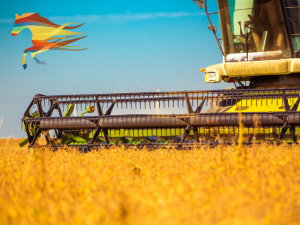

Ten new projects to help UK farming transition to net-zero farming and become more sustainable have been awarded half a million pounds worth of funding.
The projects will address sustainability challenges affecting the sector, as identified by farmers, and will be carried out by some of the UK’s leading agriculture and bioscience experts. They have been formally announced by the AHDB and the Biotechnology and Biological Sciences Research Council (BBRSC).
Five distinct topics will be covered: technology, regenerative agriculture, soil health, improving livestock farming systems and, looking to the future, the development of new resistance mechanisms. It comes as the farming industry is aiming to reach net-zero farming across England and Wales by 2040 as a contribution to a new target of 2050 for the whole of the UK.
The industry is currently responsible for about 9% of the UK’s greenhouse gas emissions, mostly from methane.
Two of the new projects will see researchers at Rothamsted Research develop a new field test kit to measure soil phosphate, while Stirling University hopes to create best-practice for tank-mixing biopesticides. Regenerative agriculture also offers opportunities for farmers to increase sustainability, with two projects aiming to provide farmers with improved guidance.
biopesticides. Regenerative agriculture also offers opportunities for farmers to increase sustainability, with two projects aiming to provide farmers with improved guidance.
Dr Julia Cooper at Newcastle University will work with farmers to better understand the opportunities and challenges for regenerative agriculture in northeast England.
Meanwhile, the University of Reading will work with farmers to provide improved guidance on reducing and optimising inputs for oilseed rape crops, particularly the soil health benefits from the addition of organic materials.
Dr Amanda Bennett, environment scientist at AHDB said: “Agriculture will be instrumental in reducing the impact of climate change by cutting greenhouse gas emissions and increasing carbon storage. “These new research projects will provide much needed progress in scientific knowledge on how farming can reach net zero by 2040.”
Other projects will aim to provide guidance on the benefits of improved soil health; Scotland’s Rural College (SRUC) will investigate how earthworms may reduce disease risk through effective residue management. And Dr Matthew Back at Harper Adams University will also explore how new soil amendments could help to store carbon in soil.
The UK is ideally suited to livestock farming and Dr Georgios Banos at SRUC will aim to improve genetics to breed climate resilient sheep, while the Royal Agricultural University will look at best grazing options.
Lastly, the University of Edinburgh aims to better understand how plants and pathogens battle at the molecular level with ‘Ubiquitin induced resistance in barley’, led by Dr Beatriz Orosa.
If you are planning a farm marketing strategy to promote your sustainable farming projects then we would also recommend seeking support from marketing advisors, you can Check out our farm marketing strategy guide here, or you can book a consultation with us here.
Article taken from Farming UK